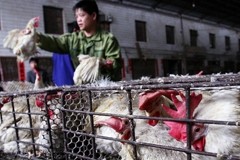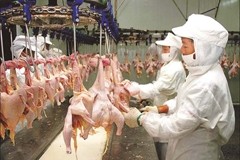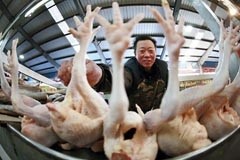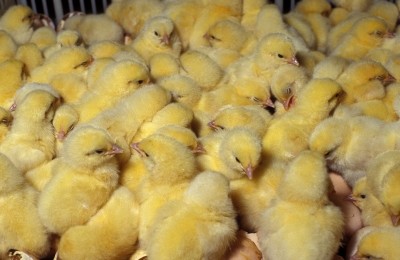Shanghai's new live poultry regulations aim to prevent H7N9 outbreaks

While live ducks and geese are still not permitted for sale, Beijing’s new standards relate to chickens, pigeons and quails, and require detailed records on daily sales, disinfection and hygiene. The regulations were released by the Shanghai Municipal Bureau of Quality and Technical Supervision.
Three live poultry wholesale markets and 461 retail markets operated in the city before the government shut down the trade on April 6 to prevent bird flu from spreading.
Better hygiene
The Shanghai Central Farm Produce Wholesale Market and the Songjiang District Huhuai Farm Produce Wholesale Market are the two remaining wholesale markets in the city. The two markets had been selling 40,000 chickens a day.
Under the new regulations, market operators must now clean and disinfect trade areas thoroughly, and live poultry markets near to residential complexes and in city centre areas must now relocate to less crowded districts.
Wholesale markets must also close for one day each week to disinfect the chicken pens and the vehicles that transport the birds, while designated retail outlets must do the same every fortnight. The three live poultry markets must also shut down every year from January to April, the time of year that a bird flu outbreak is most likely to occur.
Data mining
Both wholesale and retail markets need to establish a system, including the registration of suppliers, to track the origins of live birds before they are allowed to sell them, according to the standards.
Breeding, wholesaling and retailing data should be entered into a database and customers must be given a tracking number so they can do online searches about the poultry they purchase.
In spite of the ban on the live sale of poultry being lifted on June 20, a 56-year-old man in the city died of H7N9 bird flu last week, bringing the city's death toll from the illness to 16.
Officials have said the live poultry trade will gradually be phased out, but many residents still prefer live poultry as they think it is fresher and tastier. They also worry about the safety of chilled chicken.















